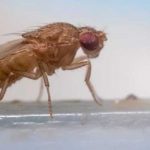
October is a special time of year in the upper Midwest – leaves turn fantastic colors, football is in full swing (maybe playoff baseball if you’re lucky), and fall festivals begin to pop up all over the area. That includes one of the most famous fall festivals held all around the world – Oktoberfest. The original German tradition is alive and well in this part of the country, with dozens of satellite festivals in Illinois and the Chicago area alone. Whether you’re there for the beer, the food, or the lederhosen, it’s a fun-filled way to ring in the fall season.
There’s another import that takes center stage this time of year, too, though few enjoy its presence – German cockroaches. No matter if you’re a food industry pro or an amateur cook at home, you’ve surely come across this scourge of kitchens everywhere. Fall is the season for roach control in Illinois, and no species is more common in the US than the German cockroach. At Terminix Anderson, we want to prepare you for the upcoming battle for your home’s sanity – and sanitation – by providing you with the information you need to get rid of German cockroaches for good.
German Cockroaches: A Global Threat
First things first, let’s clear up a quick misconception: German cockroaches are not actually from Germany. They’re not even from Europe! Recent scientific studies have shown that they actually originated somewhere in Southeast Asia, and were most likely brought to Europe through early trade. German cockroaches can now be found practically everywhere on the planet – except Antarctica, which shouldn’t come as a huge surprise. They’re prolific hitchhikers because of how small and quiet they are; often, people won’t even know they’ve been infested until it’s too late.
And when we say small, we do mean it. Adult German cockroaches range from 1/2” to 5/8”, which is smaller than a dime! When you think of roaches in Illinois, you probably think of the American cockroach – large, brown, and skittering around a dumpster or abandoned property. However, German cockroaches are actually the most abundant species of roach in the country, and they could be in your home right now without you even noticing.
Hide and Seek Experts
If any pest could be considered “domesticated,” it would be the German cockroach. While they’re found all over the world, because of their tropical origins, they can’t survive long outside in colder climates like Illinois’. They prefer warm, dark, and private spaces, which is why they spend most of their lives holed up inside many different types of buildings including:
- Houses
- Apartments
- Hospitals
- Restaurants, supermarkets, and other foodservice areas
German cockroaches always seem to terrorize kitchens because they prefer to hide near their food source. Unlike ants or rodents, cockroaches don’t really have nests. They tend to cluster no further than 10 feet from where they find their meals, which means they’ll hide anywhere from under kitchen sinks and draining boards to inside cabinets and behind refrigerators. It is in those places they will leave a dark speckling of feces that contains pheromones meant to attract other roaches to gather together.
The Dangers of a German Cockroach Infestation
Perhaps the biggest threat German cockroaches pose to your Illinois home or business is due to their incredibly quick reproductive abilities. Unlike other roaches that will drop their eggs days before they hatch, leaving them vulnerable, female German cockroaches will carry a large egg sac – called an oothecae – at the end of their abdomen until about 24 hours before they hatch.
Each oothecae contains up to 48 eggs, from which will hatch tiny, wingless roach nymphs. Because each fertilized female can produce four to six of these egg sacs in their lifetime, German cockroach populations can explode out of nowhere – with up to 80 percent of their population as pre-adult nymphs.
Though they’re more terrifying in large numbers, even a single roach can be dangerous. Because they tend to hide in kitchens and other food prep areas, German cockroaches can be a serious health hazard. They can easily transfer harmful bacteria from filth to the food you eat, which can trigger symptoms much like food poisoning in humans. Your best course of action is to keep up a rigorous sanitization effort – no filth, no roaches; no roaches, no disease.
Cockroaches in general are also infamous for triggering asthma and allergic reactions in people. When roach nymphs shed their exoskeletons as they grow, those exoskeletons become dry and brittle. Small bits, along with cockroach feces, can become airborne and produce respiratory issues when inhaled. This is especially troublesome for children living in urban areas with unchecked cockroach infestations.
How You Can Manage a Cockroach Infestation
Like bed bugs, the hardest part about getting rid of cockroaches is knowing if you have them in the first place. All roaches do their best to hide out of sight, but because German cockroaches are so small and agile, they’re exceptionally good at it – the only time they venture out is to feed or mate, and even then, only under the cover of darkness.
If you suspect you might have a roach infestation, you can try this simple test: At night, when the lights are off, sneak as quietly as you can into the infected area. Fix your eyes on a potential hiding place (remember: warm, dark, secluded), then switch on the lights. German cockroaches are fast, but not faster than the speed of light. You should be able to catch sight of one or two roaches fleeing for safety, but remember the first rule of cockroach control: If you see one, there’s dozens more in hiding.
While you might be tempted to conduct some DIY roach control with a can of pesticide spray, keep in mind there’s a reason people joke about cockroaches surviving a nuclear apocalypse. If you want to eliminate your German cockroach problem as quickly and simply as possible, your first step should be to contact an experienced pest management company like Terminix Anderson. Using the guiding principles of Integrated Pest Management (IPM), they’ll set up monitoring stations, investigate potential hiding places, and eliminate roaches using effective, non-chemical strategies that are safe for your family and pets.
One Man’s Pest is Another Man’s…Dinner?
Of course, there’s one other way that you can get rid of cockroaches – you can eat them. (NOTE: Do not try this at home.) While wild cockroaches are carriers of disease, there are parts of the world where they’re grown in captivity to serve as pets – or food.
Cockroaches are high in protein, and though it sounds unthinkable to us, many different cultures consider them a delicacy. In Thailand, they remove the head and legs, then the remains are boiled, grilled, or dried. Cockroach farming has become very popular in China lately, where they’re either sold as medicine or twice-fried in peanut oil before serving.
If all of that has you feeling a bit parched, why not wet your whistle with a tall glass of cockroach milk? Amazingly enough, scientists have recently discovered a species of cockroach in Hawaii, Diploptera punctate, that gives birth to live offspring instead of laying eggs like most insects. In order to feed her young, she produces a pale, yellow liquid “milk” from her brood sac, and though it’s not yet been tested for human consumption, the tiniest sample was found to contain almost four times as many calories as cow’s milk. So watch for cockroach milk to be the latest health-food craze in the next 20 years!
Professional Cockroach Control in Illinois
German cockroaches may not actually be from Germany, but one thing’s for sure: Just because they’re found all over the world doesn’t mean they belong in your home or business. The best method of cockroach control is, as with most pests, to keep them from coming around in the first place. Plug your tub drain when not in use, seal cracks and crevices in windows and shared walls, and keep your kitchen and other food prep areas as clean as possible.
However, even the best pest management practices can’t stop every infestation. If you’re ready to get rid of cockroaches for good, don’t wait another minute – contact your local pest control experts at Terminix Anderson today.



